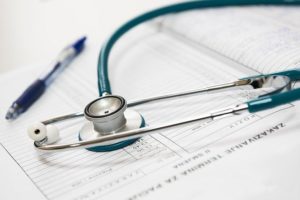Germany has implemented a new system for electronic prescriptions as part of their efforts to modernize their healthcare system. The electronic prescription system, also known as e-prescription, allows doctors to send prescriptions directly to pharmacies through a secure digital platform. This eliminates the need for patients to physically carry paper prescriptions to pharmacies, making the process more efficient and convenient.
One of the significant advantages of electronic prescription is that it reduces errors caused by illegible handwriting and transcription errors. The digital system also allows doctors to access the patient’s medication history, which helps in avoiding adverse drug interactions and prescribing the right medication.
As of January 1, 2024, the use of e-prescriptions for prescription medications will be mandatory for people on statutory health insurance (Gesetzlich). The pink paper prescription will no longer be valid. People on statutory health insurance will now only receive prescription medication via e-prescription and can redeem this with:
- their electronic health card (eGK)
- via app or
- with a printed copy that includes a QR Code from their doctor
You can redeem the e-prescription at a pharmacy of your choice or an online pharmacy.
Contracted doctors (Vetragsärztinnen und -ärzte) who are not yet able to issue an e-prescription due to technical reasons must use the paper prescription previously provided (pink paper).
Using the app
People with statutory health insurance can download the Gematik e-prescription app. You can download these in the common app stores (App Store, Google Play, AppGallery) and from the Gematik website.
On the Gematik website, you will also find information on how you can use the e-prescription without a smartphone.
Advantages of the app
- With the e-prescription app, you can conveniently receive your prescription on your smartphone.
- You can also use the app to look up important information or how to take your medication.
- Do you need a follow-up prescription? You can request this from your medical practitioner and then access it in your app – without visiting the doctor’s office.
- The family function in the e-prescription app relieves the burden of caring for relatives. The function makes it possible to manage and redeem prescriptions for family members in your own app. These can be parents’ prescriptions as well as those of siblings or children. The number of profiles is not limited.
- The e-prescription app shows you the pharmacies in your area. You can also view additional information, such as opening times or whether the pharmacy offers a courier service.
- You can order your medication online directly from the e-prescription app – either to pick it up at your pharmacy or conveniently delivered to your home via courier service.
How to register on the app
There are two different ways to register/log into the e-prescription app.
- Registration with the electronic health card (eGK) and PIN
- Registration via your health insurance company’s app (Krankenkassen-App)
Registration with the electronic health card:
To register with your eGK you need:
- An NFC-enabled smartphone (with at least iOS 15 or Android 7)
- An NFC-enabled health card and PIN
If you have an NFC-enabled health card and PIN yet, apply for both from your health insurance company. You can watch a video that will explain how the registration works on the E-Rezept website.
Using your electronic insurance card (eGK)
Your doctor prescribes you an e-prescription. This data is stored in a secure central telematics infrastructure (TI).
At the pharmacy, you insert your card into the Card Terminal.
The pharmacist retrieves all your open e-prescriptions from the TI and gives you your medication.
Your card only serves as a key, to identify you, the data for the prescription is not stored on the card. If you lose your card, contact your health insurance company immediately.
Using the e-prescription without a smartphone
You can also use e-prescriptions without a smartphone. Your doctor can give you a printout of your prescription. This will contain all the information needed in a QR Code. It will be signed electronically by the doctor, so there is no need for a manual signature.
The staff at the pharmacy will scan the code and process the prescription.
For more info see the E-Rezept website
Related content

Visiting a Doctor – Phrases
here are some basic phrases and terms to help you on your next general doctor’s visit. Making an appointment A typical conversation to make an

Women’s Health
Contraception Contraception is a vital aspect of reproductive healthcare, and it is readily available at pharmacies. However, to obtain birth control pills, IUDs, and diaphragms,

Ask a Pharmacist
A qualified pharmacist offered to assist in trying to answer questions regarding substitute suggestions for South African pharmaceutical products.Very important – always refer to your

Visiting a doctor
When I first came to Germany, I was fortunate to still frequently travel back to SA, so I did all my check-ups there and tried


You must be logged in to post a comment.